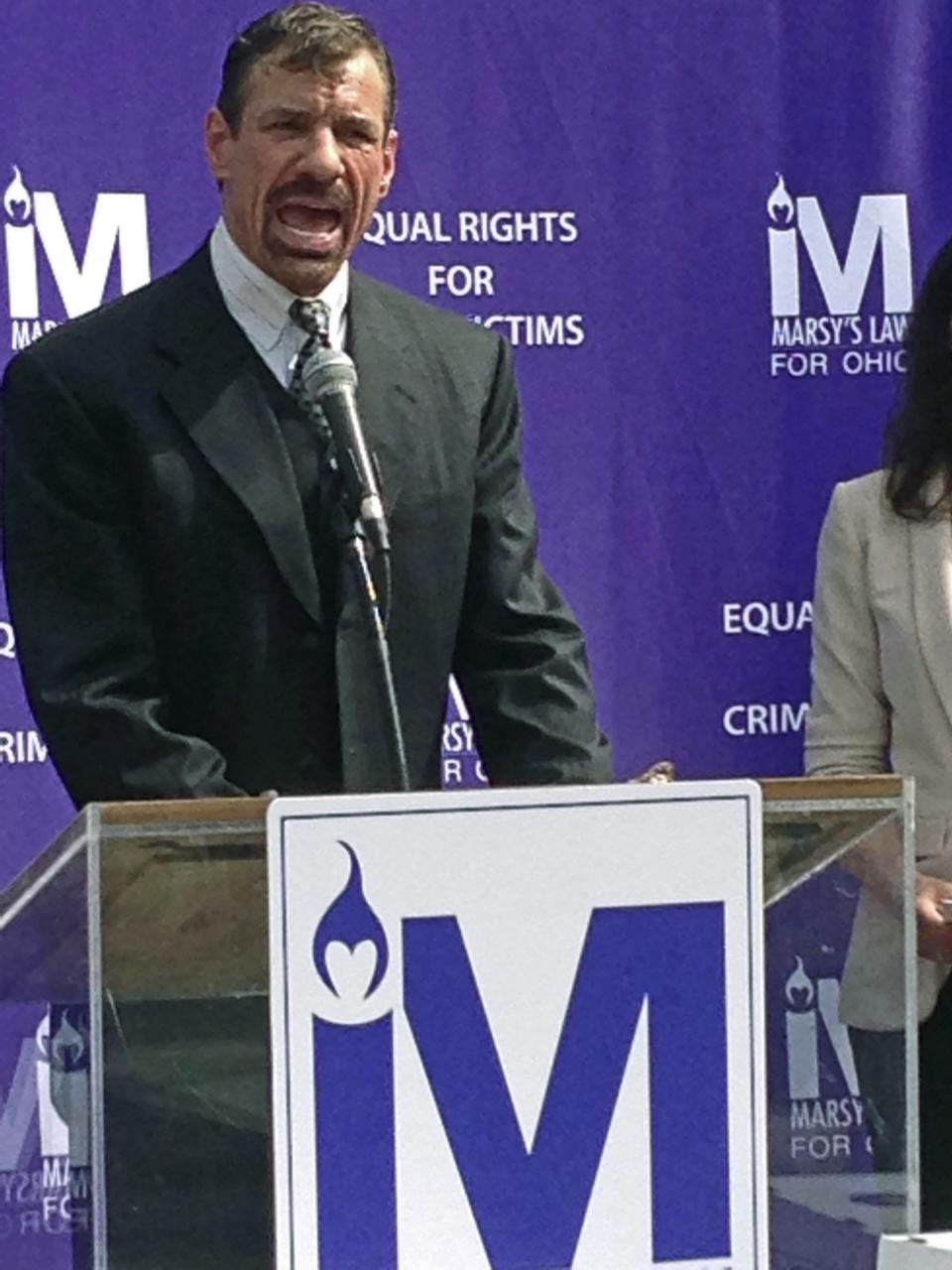From the editor: Ohio's enactment of Marsy's Law muddies the water for public records
It's a nightmarish story.
In 1983, Marsalee Ann Nicholas, a college student in California, was killed by her former boyfriend. One week later, Marsalee’s mother was confronted by the accused killer in a grocery store, unaware that he had been released on bail.
In 2008, California passed what is now known as Marsy’s Law, a constitutional amendment that expanded the rights of crime victims and their families. Among the provisions are requirements that courts provide notification of all activities, including parole hearings; the right to speak during court proceedings; and court-ordered protection from the accused.
Other states have enacted their own versions of Marsy’s Law. In Ohio, voters passed the Crime Victims’ Bill of Rights in 2017. In April of this year, Gov. Mike DeWine signed into law House Bill 343, legislation that spelled out how the law will be implemented.

Marsy’s Law had wide, bipartisan support in Ohio, and it’s easy to see why. Accused criminals are read their rights upon being arrested. Prior to Marsy’s Law, there was no standard equivalent for victims and their families. Now, law enforcement officials and prosecutors are required to provide victims with a document created by the Ohio Supreme Court that summarizes their rights under Marsy’s Law and includes forms to request those accommodations.
Unintended consequences
While the intention is good – I won’t be making a case here against victims’ rights – House Bill 343 has had the unintended consequence of making it harder for the press and anyone else to obtain arrest reports and court documents, both of which are public records. Here’s the conundrum in a nutshell.
One of the provisions of Marsy’s Law is that victims and their families can request (request being the key word) that their names and other identifying information be redacted before the record is released to the public. That in and of itself is not problematic. The Enquirer, by policy, does not publish the names of juvenile crime victims and those who have been sexually assaulted. We do publish the names of homicide victims, which arguably is a matter of public interest.
But House Bill 343 – a dense, 137-page document that devotes dozens of those pages to defining public records, what a journalist is and how documents are to be handled by officials – has created confusion. A memo released by the Hamilton County Clerk of Courts to local media organizations warned that records requests could be delayed while they sort through the new law. Cincinnati police are now preemptively redacting the names of crime victims when fulfilling records requests, including the names of homicide victims. Not to state the obvious or sound crass, but I don’t think someone who has been killed is likely to request that their name be redacted from the police report. To me, dying in anonymity at the hands of a criminal is the ultimate travesty of justice.
Legal challenges ahead
Odds are likely that some of the confusion will be sorted out in the courtroom as members of the press and other freedom of information advocates seek legal relief. You can count The Enquirer among those who will fight to make sure the much-needed guarantee of victims’ rights does not erode the public’s access to police and court records, the ultimate check and balance to ensure the legal system is accountable to the citizens it serves.
An interesting footnote: Marsalee Ann Nicholas was born in the Cincinnati suburb of Glendale before moving to California with her mother and brother as a small child.
•••
The Enquirer was named best large newspaper in Ohio by the Press Club of Cleveland in its annual Excellence in Journalism Awards. Several Enquirer staffers won first-place honors, including reporters Alex Coolidge, Sharon Coolidge, Dan Horn, Amber Hunt and Randy Tucker; and visual journalists Phil Didion, Mike Nyerges and Amanda Rossmann. Congrats to my colleagues, and thank you to our subscribers. Your support of local journalism makes this award-winning work possible.
Enquirer Executive Editor Beryl Love writes a biweekly column that takes you behind the scenes at The Enquirer. Occasionally, he shares his thoughts on local issues, particularly as they pertain to a free press and open government. Email him at blove@enquirer.com. He can’t respond personally to every email, but he reads them all.
This article originally appeared on Cincinnati Enquirer: Editor Beryl Love Ohio Marsy's Law threatens access to public records


